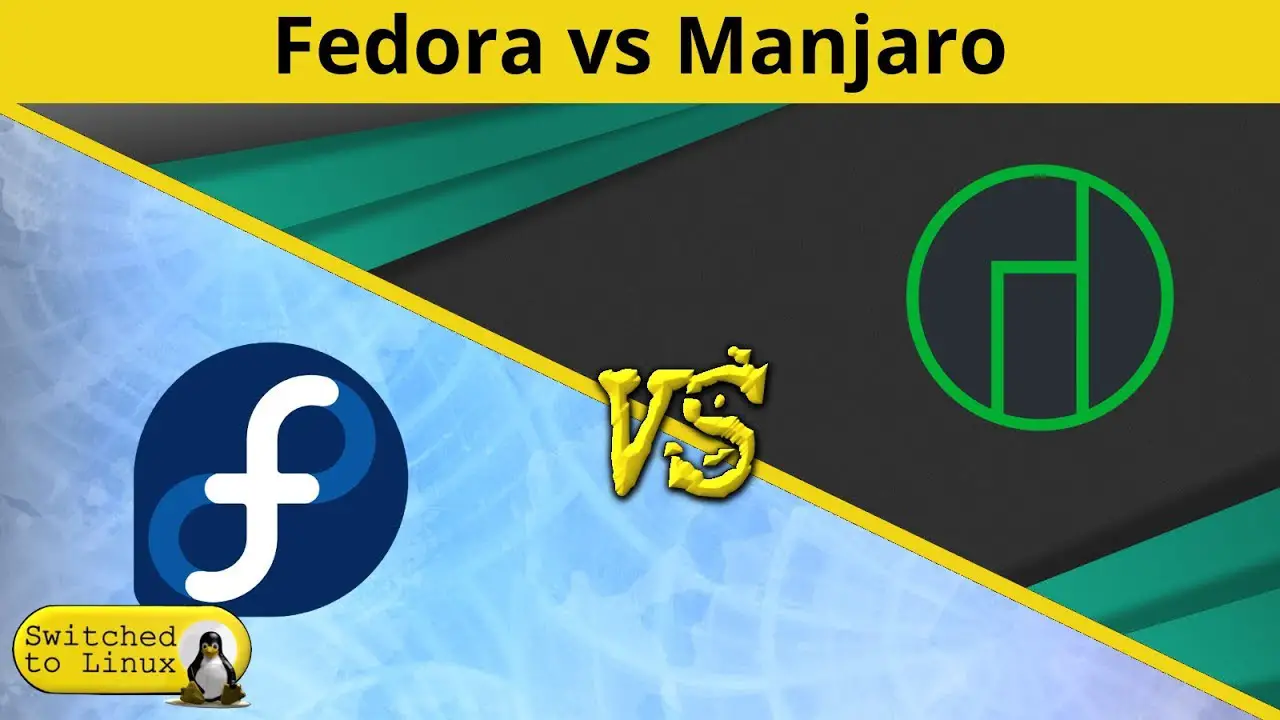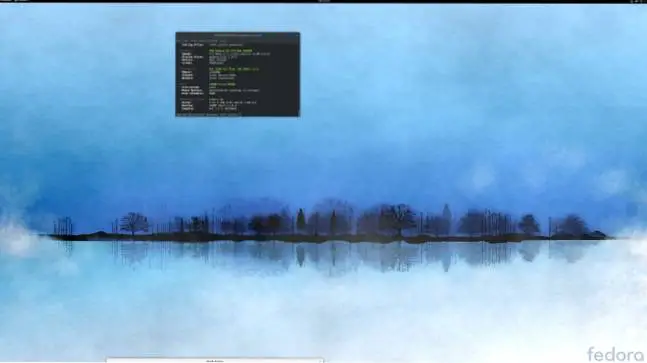Fedora and Manjaro are both popular Linux distributions known for their stability and security. While they share some similarities, there are also some key differences between the two.

Security

Fedora is a Red Hat-sponsored distribution that follows a strict security policy. All packages in the Fedora repositories are thoroughly tested and audited before they are released, and the distribution receives regular security updates. Manjaro, on the other hand, is a community-driven distribution that does not have the same level of security oversight as Fedora. However, Manjaro does provide a number of security features, such as a built-in firewall and the ability to use security-oriented software such as SELinux.

Stability
Fedora is known for its stability and is often used in production environments. The distribution is based on the latest stable versions of the Linux kernel and other open-source software, and it receives regular updates to ensure that it remains stable. Manjaro is also a stable distribution, but it is not as well-tested as Fedora. This is because Manjaro is based on the Arch Linux distribution, which is a rolling release distribution. This means that Manjaro is constantly updated with the latest software, which can sometimes lead to stability issues.
Conclusion
Fedora and Manjaro are both secure and stable Linux distributions. However, Fedora is a better choice for users who are looking for a distribution that is well-tested and has a strong security track record. Manjaro is a good choice for users who are looking for a distribution that is constantly updated with the latest software.
Here is a table that summarizes the key differences between Fedora and Manjaro:
| Feature | Fedora | Manjaro |
|---|---|---|
| Security | Strict security policy, regular security updates | Community-driven, less security oversight |
| Stability | Based on stable versions of software, regular updates | Rolling release distribution, constantly updated |
| Best for | Users looking for a well-tested and secure distribution | Users looking for a distribution that is constantly updated with the latest software |

Fedora is a very stable distribution, but it can be a bit boring. Manjaro is more up-to-date, but it can be a bit less stable. I personally prefer Manjaro because I like to have the latest software.
I’ve used both Fedora and Manjaro, and I prefer Fedora. I find it to be more stable and reliable. Manjaro is more up-to-date, but I’m not a fan of the rolling release model. I prefer to have a stable system that I don’t have to worry about too much.
The security of a Linux distribution depends on a number of factors, including the distribution’s package management system, its update process, and its user base. Fedora and Manjaro use different package management systems and have different update processes. Fedora uses a centralized package management system and has a more stringent update process than Manjaro. This makes Fedora more secure than Manjaro.
I think it’s unfair to say that Fedora is more secure than Manjaro. Manjaro has a very good security record, and it’s just as secure as Fedora. I think the real difference between the two distributions is that Fedora is more conservative, while Manjaro is more bleeding-edge.
I’m not sure why people are so worried about security. I’ve been using Manjaro for years and I’ve never had any problems. I think it’s a great distribution and I would recommend it to anyone.
I’m not sure what all the fuss is about. Fedora and Manjaro are both great distributions. It really depends on what your needs are. If you want a stable and reliable system, then Fedora is a good choice. If you want the latest software, then Manjaro is a good choice. It’s really that simple.
I’m not sure why people are so worried about security. I’ve been using Linux for years and I’ve never had any problems. I think it’s a great operating system and I would recommend it to anyone.
I’ve used both Fedora and Manjaro, and I prefer Fedora. I find it to be more stable and reliable. Manjaro is more up-to-date, but I’m not a fan of the rolling release model. I prefer to have a stable system that I don’t have to worry about too much.
I’ve used both Fedora and Manjaro, and I prefer Manjaro. I find it to be more up-to-date and I like the rolling release model. Fedora is more stable, but I’m willing to trade a little bit of stability for the latest software.
I’m not sure why people are so worried about security. I’ve been using Linux for years and I’ve never had any problems. I think it’s a great operating system and I would recommend it to anyone.
I think it’s unfair to say that Fedora is more secure than Manjaro. Manjaro has a very good security record, and it’s just as secure as Fedora. I think the real difference between the two distributions is that Fedora is more conservative, while Manjaro is more bleeding-edge.
I’m not sure why people are so worried about security. I’ve been using Manjaro for years and I’ve never had any problems. I think it’s a great distribution and I would recommend it to anyone.
I’m not sure what all the fuss is about. Fedora and Manjaro are both great distributions. It really depends on what your needs are. If you want a stable and reliable system, then Fedora is a good choice. If you want the latest software, then Manjaro is a good choice. It’s really that simple.
I’m not sure why people are so worried about security. I’ve been using Linux for years and I’ve never had any problems. I think it’s a great operating system and I would recommend it to anyone.